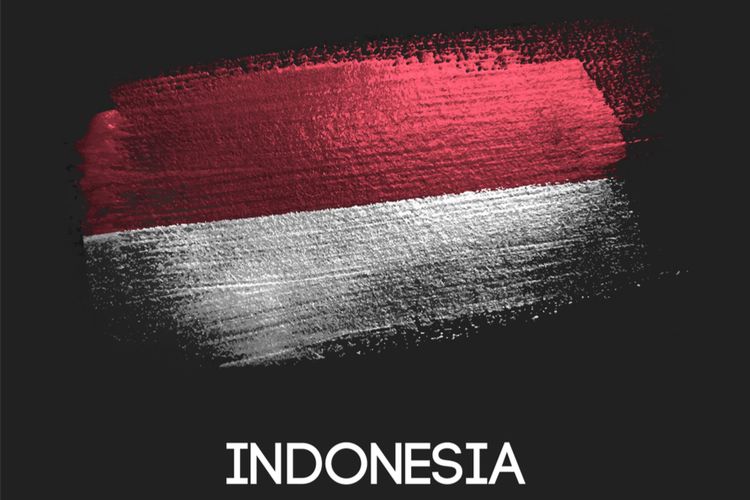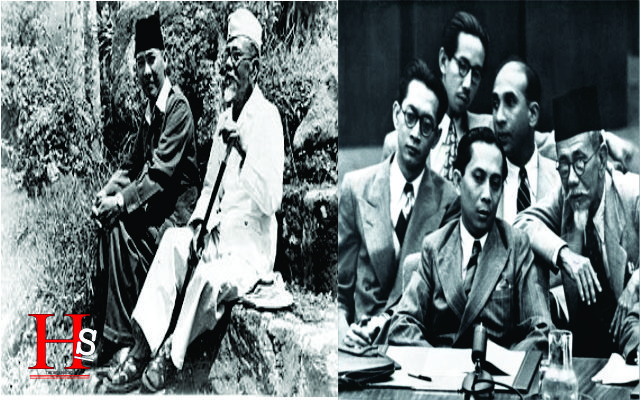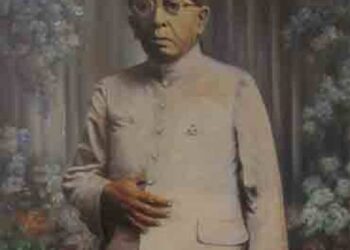BAB I
INTRODUCTION
- Background Issues

Various problems faced by the Indonesian nation ranging from the problems of corruption, poverty, unemployment, terrorism, and so on. It raises a lot of complex problems. One of them is the low sense of Indonesian nationalism. Indeed it is undeniable because society prefers to think about its survival rather than think of such things that it considers insane. Whereas the sense of nationalism is very important for the Nation of Indonesia to be a developed nation, a modern nation, a safe and peaceful nation, just and prosperous.
That is in contrast to the situation that occurred in the history of the Indonesian nation during the Dutch colonial period. The Indonesian nation reached the peak of the success of the nationalism at that time. Where our former fighters rallied from Sabang to Merauke to break free from colonialism. This can be realized if there is a high sense of nationalism in Indonesian society. And it has been proven that we can proclaim the independence of the Republic of Indonesia with a high fighting spirit. But what about this moment? This also affects the nation’s national resilience. We can see the many acts of corruption committed by the public, the bombings in Indonesia, and so on as if to answer that there is such a low sense of nationalism that we can damage our nation and country.
- Problem Findings
The association of the height or low sense of Nationalism is indeed closely related to many factors. These factors can be due to poverty and unemployment rates, the poor certainly don’t think about such things but they often think about how they can eat tomorrow.
BAB II
NATIONALISM
- Understanding Nationalism
Nationalism is a national consciousness that contains ideals and drivers for a nation, either to seize independence or eliminate colonialism or as a driver to build itself and the environment of society, nation, and country.
We as Indonesian citizens, certainly feel proud and love the nation and country of Indonesia. Our pride and love for nation and country does not mean we feel great and superior to other nations and countries. We must not have an excessive spirit of nationalism (chauvinism) but we must develop an attitude of mutual respect, respect, and cooperation with other nations.
So Nationalism can also be interpreted:
- Nationalism in a narrow sense is an attitude that elevates its people, while not respecting other nations as it should. This attitude scatters one nation with another. Such circumstances are often called chauvinism.
- In a broad sense, nationalism is a view of a reasonable love of nation and country, and at the same time respect for other nations.
CHAPTER III
NATIONALISM IN INDONESIA
Indonesia is a nation rich in culture, tribe, race, and religion. This is very related to the soul of Indonesian nationalism, the high or low sense of Indonesian nationalism caused by many affecting factors. Factors that affect the high or low sense of nationalism include the influence of western cultures that very easily enter and influence Indonesian culture that identity is eastern culture. There are also economic factors that influence the sense of nationalism of the Indonesian nation. Regardless of these factors actually in the history of the nation mentioned that the sense of nationalism in the colonial era is higher than at this time, it is undeniable that the Indonesian people can be detached from the Dutch colonization which of course used to be pioneered by Bung Karno and his comrades.
Nationalism always glorifies the history and culture of the nation, but its implementation in actual circumstances is precisely zero or vice versa, trampling on the culture and history of the nation and utilizing it for the benefit of power. Thus, the sale of ideology and treason on people’s beliefs is inevitable. The relationship between these glorified unique values and socio-political behavior is increasingly obscure, often while boasting of the nation’s culture, easily depriving people of their lives. Or while calling for tolerance, shamelessly kidnapping dissenting people. And while preaching about tepo sliro, but stealing people’s money, seizing the land of the people.
CHAPTER IV
CONCLUSION
The sense of nationalism in Indonesia has existed from the time of the struggle against the invaders only year after year experienced thinning due to the many factors that influenced it. Among other economic factors that cause many problems of unemployment, poverty, and others. That sense of nationalism must be re-fertile so that it does not disappear swallowed uptime. The State of Indonesia itself adheres to Pancasila Nationalism which in this Nationalism we not only love the Nation and the State of Indonesia itself but also respect other Countries and nations.

















